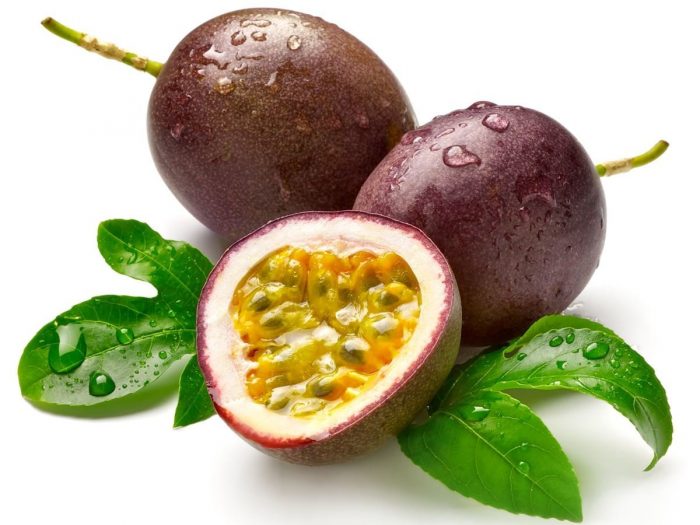Health Benefits and Medicinal Uses of Eating Guava
Guava is termed as superfruits because of the presence of multiple health benefits nutrients-vitamin A, vitamin C, folic acid, potassium, copper, manganese, fibre, flavanoids, and other phytochemicals. It is surprising to know that guavas are having more vitamin C than oranges and more potassium than bananas.
 One guava contains 169 mg of vitamin C while an orange has only 69 mg. Guava is also used as guava jams and jellies. To know in details about the Top 15 Health and Medicinal Benefits of Guavas, go through the article.
One guava contains 169 mg of vitamin C while an orange has only 69 mg. Guava is also used as guava jams and jellies. To know in details about the Top 15 Health and Medicinal Benefits of Guavas, go through the article.
Guava for cancer treatment
Guava is one of the important fruits which are abundant with cancer fighting antioxidants-Lycopene. The phytochemical-lycopene is good for treatment and combating of cancerssuch as prostate and breast cancer. The higher concentration of Lycopene fights with free radicals and prevents the risk of cancer and heart diseases. For cancer diseases, one should prefer to red fleshed guava over other varieties of guavas. The antioxidants also prevent the formation of cancerous tumours. The other nutrients such as vitamin A, vitamin C, fiber, flavonoids, beta-carotene, lutein and cryptoxanthin along with antioxidants also help to fight free radical cells which credit to cause cancer.
[smartads]
Guava is plentiful of dietary fibre that aids in protecting of colon mucous which prevents toxins and cancer causing cells. Fruits rich in carotene such as guava are known to fight off lung and oral cancers too.
Guava treats hypertension
Guava is highly useful for the treatment of blood pressure, hypertension and heart disease. Guava contains adequate fiber and also hypoglycemic in nature which helps to control cholesterol levels and blood pressure. Guava improves heart health, prevents stroke by controlling high blood pressure and lowering cholesterol which is credited to the presence of moderate quantity of potassium.
Guava for skin care and beauty
Are you facing the problems of skin loosening, regular eating of guava works significantly in improving the texture and health of the skin? Guava enhances skin texture, tightening the loosening skin, and far better options than the nourishing lotions available in the market. The higher concentration of minerals and nutrients presence in guava makes the skin toned, fresh and wrinkle free. Guavas also help to revive the lost elasticity of the skin. The astringents present in guavas keep the skin away from blemishes, acne, wrinkles and pimples. Guava, being anti blemishes in nature, also known for anti aging properties. For skin beauty, you may also wash your face with the decoction of immature guava fruits and its leaves.
Constipation home remedy through Guava
Guava contains sufficient quantity of dietary fibre and roughage that are extremely beneficial for constipation piles and haemorrhoids. A 100 gram of guava contains about 36% of recommended daily intake of fiber. Guava seeds are powerful laxatives, help in chronic constipation and cleansing the digestive system. Dietary fibre helps in digestion and absorption of nutrients from food substances. Guavas contain higher amount of insoluble fibre that facilitate the movement of wastes from colon; clean the intestines and excretory system and help in treatment of constipation. Since guavas cleanse the intestine, so it is also an effective remedy for intestinal laziness.
Weight Loss through guava
Many of us don’t know how to lose weight naturally and effectively through diets and foods. Guavas are the important weight loss foods. Guavas are rich in dietary fiber, minerals and vitamins with no cholesterol and low carbohydrate; give you the satisfaction of fullness. If you want to lose your weight naturally, eat one or two guava at lunch time. It is sufficient to give you energy till the evening. Guava leaves are also considered as weight loss diet. The adequate roughage keeps your stomach full, reduces the desire of more eating thereby helps to lose weight from tummy and other regions.
Diabetes treatment and guava
A study was conducted by Medicinal Research Laboratory, Allahabad University on mice showed that guava fruits and leaves have the power to lower blood sugar levels. It showed positive results when the fruit was taken without skin. In Japan, guava leaf tea is taken to promote health and prevents diabetes as this helps to absorb maltose and sucrose thereby control blood sugar levels. In China, peeled guavas are also taken to treat diabetes since the ancient times.
Guava for toothache
Guava contains greater percentage of vitamin C than oranges, about four times than oranges. Having a higher concentration of vitamin C, it is useful in the treatment of bleeding and swollen gums. The astringents contents of guava leave juice are a useful remedy for toothache pain, swollen gums and ulcers. The gargling of guava leaves is an important toothache remedy. The properly masticated guava stopped the blood leakage from gums. Guava juice is one of the important home remedies to treat gums problems. Guava is rich in folate that prevents bad breath which is responsible for gum disease gingivitis.
Guava for cough and cold
Guava leaves juices are beneficial in curing and treating cough and cold. Guava juice reduces lungs congestion & mucous formation, and makes the respiratory tract infection free because of its rich source of Vitamin C and iron. These nutrients are also helpful to inhibit influenza virus infection. Guavas juices also helpful to fight dengue fever.
Guava for diarrhea and dysentery
Guava is beneficial in the treatment of diarrhoea as the fruit inhibits microbial growth, releases excessive mucous from the intestine thereby helps to bind loose stools. The fruits are alkaline in nature that prevent the growth of bacteria, and having disinfectant properties. The phytochemical such as carotenoids, vitamin C and potassium acts like as disinfectants. Chewing guava leaves remove extra mucus from the intestine. Drinking guava leaf tea results in fewer stools. Guava barks are also used as astringents to treat diarrhoea among children. Guava leaf extract is useful in curing of gastrointestinal disorders because of containing quercetin and flavonoids.
Guava for heart disease treatment
The extract of guava is considered as proper functioning of heart and heart beat. Guava combats free radicals produced after metabolism and helps to check age related diseases such as Alzheimers, cataracts, heart disease and rheumatoid arthritis. The dietary fiber of guavas is helpful in lowering of cholesterol.
Guava leaf health benefits
Tender guava leaves are used as medicine since long times. These young leaves are abundant with many beneficial bio-chemicals such as quercetins and vitamin C including many antioxidants. Tender guava leaf tea is useful in curing of diabetes, diarrhoea and reduces cholesterol. Guavas folate helps in the metabolism of protein and carbohydrate for fuel.
Medicinal benefits of guavas
The different components of guavas such as fruits, barks, leaves are beneficial against of bacteria such as Micrococcus pyogenes and Escherichia coli. Fruits extract of guavas are useful against Salmonella. The fruits of guavas are also used as laxative. The vitamin C contents develop immune system which prevents fungal, bacterial and viral infections. The folate of guavas is good for pregnant women as it prevents defects in new born baby.
Nutrition facts guava
Guavas are rich in many vitamins, minerals and nutrients. Guava contains an antioxidant-vitamin E which helps preventing tissue damage from free radicals, and protects your body by releasing toxins. It is packed with nutrients such as calcium, potassium, vitamins C, A and B, folic acid, fiber, beta carotene, lycopene, phosphorous, iron, folate, flavonoids, isoflavonoids, polyphenols, etc. A test has confirmed that guava has the highest concentration of antioxidants than apples, pomegranates, Indian plums, mangoes, custard apples, bananas and grapes
Guavas juice health benefits
Guavas juices are prepared of young leaves and guavas. Guavas juices have many health and medicinal benefits. Guavas juices are refreshing in nature. Guavas juices are rich in fiber which is beneficial for proper functioning of digestive system. It helps to cleanse the body. Also useful for obese as well as diabetic patients.
Guava for acidity treatment
Guavas act like as alkanity inside the body. The basicity properties of guavas are used in the treatment of acidity and hyperacidity. Guavas juices are helpful in releasing of toxins from the body, especially from the stomach.



























